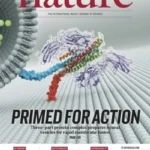Polypharmacology, or concurrent engagement of multiple molecular targets, is a common feature of the most prevalent classes of therapeutics for treating disorders of the central nervous system, including antidepressants. To date, the identification of scaffolds with desirable polypharmacologic activity has relied on a largely unguided, phenotypically-driven approach, since there are few techniques for matching a discrete desired or undesired outcome with a specific pattern of concurrent action at multiple targets. Nevertheless, accessing the mechanistic understanding offered by such a systems pharmacology approach is a fundamental priority if the rational design of multi-target psychiatric therapeutics is ever to become a reality.
Therefore, the long-term objective of this line of work is to develop and validate antibody-mediated and combinatorial neuronal ensemble tagging chemical neuroscience methods as complementary means to identify and manipulate targetable polypharmacologic phenomena across molecular, cellular, and behavioral levels. More immediately, this project aims to use our previously validated DISSECTIV incremental vaccination method against small molecule therapeutics to identify whether (R,S)-ketamine and (2R,6R)- hydroxynorketamine act on differential glutamatergic targets in a temporally coordinated manner to reduce the expression of anhedonia and behavioral despair in a rapid, yet persistent, manner.
Furthermore, it aims to use neuronal ensemble activation, tagging, and ablation in the presence of single or multiple chemical species arising from (R,S)-ketamine administration. This will allow for identification of emergent cellular-level effects due to polypharmacologic engagement. Overall, this project will not only provide needed clarity regarding how (R,S)-ketamine and (2R,6R)- hydroxynorketamine interact to support treatment of major depressive disorder, but will also identify potential mechanistic means to separate the abuse liability of rapidly-acting glutamatergic antidepressants from their therapeutic effects.
Interested in working on projects like this? Learn how you can join the Wenthur Lab.
Grant information
- Funding source: National Institute of Mental Health
- Grant #: R01MH122742
- Active Date: 4/1/2020 – 01/31/2025
Related News
- June 13, 2020
Antibodies to Boost Treatments for Depression

